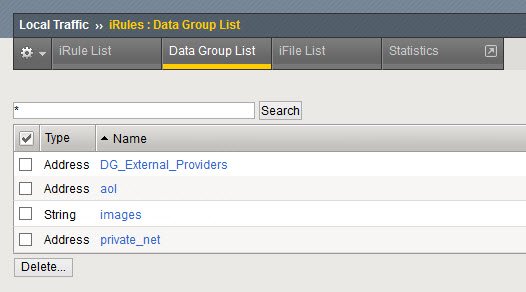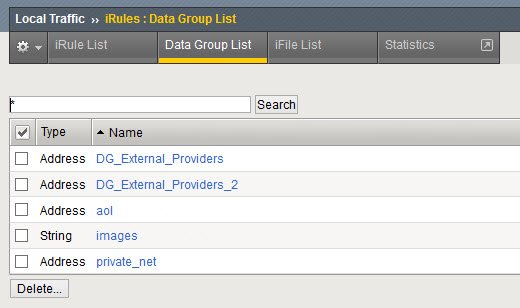Datagroups can be used in LTM policies to, for example, filter connections based on the client IP address (at least in my BIG-IP v13.0.0)
This is possible by adding a condition like this:

“TCP” – “address” – “matches” – “in datagroup” <DATAGROUP> – at “request” time
(apply traffic on “remote” side of “external” interface)
Problem
This works correctly when the datagroup used in the condition is the only created one (in addition to the “aol”, “images” and “private_net” default ones)

But if another datagroup is created…

Altough we configure it in the condition…

it seems the LTM policy only verifies the first datagroup that come first in order in the datagroup list (in this example DG_External_Providers) instead of the one configured in the rule (DG_External_Providers_2)
Workaround 1
As a workaround, not sure if using “any of” instead of “in datagroup” in the condition can be used:

Workaround 2
The equivalent IRule to the condition does not reproduce the bug, so its a good workaround.
when HTTP_REQUEST {
if { [class match [IP::client_addr] equals DG_External_Providers_2]} {
log local0. "[IP::client_addr] IP client accepted"
...
}
}
Bug ID
F5 confirmed this behaviour is bug-related, and they have filled bug ID688744 to track this problem. Since this is a new bug, no fix is available yet.
Update:
The issue has been solved on v13.1.0.8.
See https://support.f5.com/csp/article/K11793920 for details.
